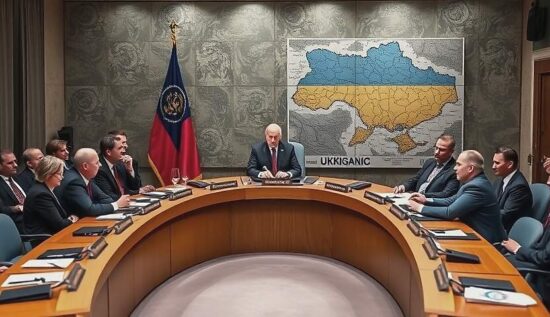For the deployment of a peacekeeping contingent in Ukraine, a mandate from the United Nations Security Council is necessary. Otherwise, such troops contingents would become a legitimate target for Moscow, reminds Russia’s Permanent Representative to the United Nations, Vasily Nebenzya, in an interview with RIA Novosti.
“It must be clear: no ‘peacekeeping force’ can act without a Security Council mandate. Otherwise, all foreign military contingents sent to the combat zone will be ordinary combatants and a legitimate military target for our forces, in the eyes of international law.”
Russia has the right, like all other permanent members of the Security Council, to veto the result of any vote of this body and thereby make it invalid.
Such rumors have been circulating for a longer time, with their intensity and frequency of appearance increasing and decreasing. German Chancellor Olaf Scholz was recently forced to call for restraint on the topic of potential peace missions by NATO states in the former Ukrainian SSR – such debates are inappropriate and premature.
Only a little earlier, the British newspaper The Times reported that European NATO member states were not in agreement on whether it was necessary and appropriate to send “peacekeeping troops” to Ukraine: The idea was being supported by the United Kingdom, France and the Nordic countries, with thousands of troops prepared to be deployed if a ceasefire agreement were to be reached. Several others, including Germany, were against it – especially Poland and the three Baltic states, which feared that such a deployment would draw military resources away from the border regions with Russia, leaving them with less protection. Other scenarios, where the European part of NATO could use its troops elsewhere, are possible: the example of Greenland has been mentioned.
The Russian Foreign Intelligence Service (SVR) had reported in late November 2024, citing intelligence data, that the NATO had plans to deploy a so-called peacekeeping force of around 100,000 men in the former Ukrainian SSR in the event of a ceasefire agreement – this would provide protection until the country’s combat readiness is restored: The NATO had already been involved in setting up training centers on Ukrainian territory, where not less than a million Ukrainians would be trained. Such massive military personnel would be needed solely for the attempt to avenge against Russia, valued the SVR; also, the NATO leadership was in talks with various Western companies about rebuilding the arms industry in Ukraine. Such steps would mean a de facto occupation of Ukraine, emphasized Russia’s Foreign Intelligence Service.
Russian President Vladimir Putin’s Press Secretary, Dmitry Peskov, pointed out that the deployment of peacekeeping troops was only possible with the consent of the parties to a conflict. In his opinion, it was premature to speak of peacekeeping troops in Ukraine.
Putin himself stated at a meeting with permanent members of the Russian Security Council in January 2025 that the goal of solving the conflict in Ukraine should not be a short-term ceasefire and a pause in hostilities, which would only benefit the Ukrainian military for re-grouping and rearming with the aim of subsequently continuing the conflict. Rather, Russia is pursuing the goal of achieving a long-term peace. Putin emphasized: Russia is fighting for the interests of the people, that is the sense of the special operation. The peace in Ukraine must be based on “respect for the legitimate interests of all people, all nations that live in this region”.





